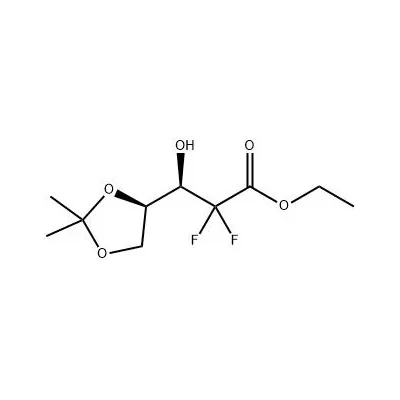What Are Pharmaceutical Intermediates and Why Are They Important?
2024-12-07
The pharmaceutical industry is a cornerstone of modern medicine, developing lifesaving drugs and treatments. At the heart of this process lies an often-overlooked but vital component: pharmaceutical intermediates. But what exactly are they, and why are they so critical to the production of pharmaceuticals?
1. What Are Pharmaceutical Intermediates?
Pharmaceutical intermediates are chemical compounds that serve as precursors in the synthesis of active pharmaceutical ingredients (APIs). These intermediates are not the final drugs but are essential building blocks in the complex chemical pathways leading to their creation.
For example:
- In the production of antibiotics, intermediates are synthesized before forming the final active compound.
- In oncology, specific intermediates help develop cancer-fighting drugs.
Intermediates can be simple or complex molecules, depending on the target drug and its synthesis process.
2. Why Are They Essential in Drug Manufacturing?
Pharmaceutical intermediates play a crucial role in ensuring the efficacy, safety, and scalability of drug production:
- Precision and Purity: Intermediates undergo rigorous testing to ensure they meet the required standards for purity and chemical properties. This precision is vital for the quality of the final API.
- Cost-Effective Production: By creating intermediates in bulk, manufacturers can streamline the production process and reduce overall costs.
- Customization: Different drugs require specific intermediates tailored to their molecular structures. This customization allows pharmaceutical companies to develop targeted therapies.
3. How Are Pharmaceutical Intermediates Made?
The production of intermediates involves advanced chemical synthesis techniques, including:
- Organic Synthesis: Combining simpler organic molecules to create complex intermediates.
- Catalysis: Using catalysts to speed up chemical reactions and enhance yield.
- Biotechnological Methods: Employing enzymes or microorganisms to produce intermediates for certain drugs, such as antibiotics.
These processes require state-of-the-art facilities and expertise to ensure the highest standards of quality and safety.
4. What Are the Challenges in Producing Intermediates?
Manufacturing pharmaceutical intermediates is not without its challenges:
- Regulatory Compliance: Intermediates must adhere to strict international regulations to ensure safety and efficacy.
- Complex Supply Chains: The global nature of the pharmaceutical industry means intermediates often need to be sourced from multiple countries, increasing logistical complexity.
- Environmental Concerns: The production processes can generate waste, requiring sustainable practices to minimize environmental impact.
Despite these challenges, technological advancements and tighter regulations are helping to overcome these obstacles.
5. How Do Intermediates Impact Drug Development?
Pharmaceutical intermediates directly influence the speed, cost, and success of drug development:
- Accelerated Timelines: High-quality intermediates can reduce the time needed to synthesize APIs, speeding up the drug development process.
- Lower Costs: Efficient intermediate production reduces research and manufacturing expenses, making drugs more affordable for consumers.
- Enhanced Innovation: The availability of diverse intermediates encourages the exploration of new therapeutic pathways.
6. What Does the Future Hold for Pharmaceutical Intermediates?
As the demand for innovative drugs grows, so does the need for advanced pharmaceutical intermediates. Key trends shaping the future include:
- Green Chemistry: Emphasizing environmentally friendly production methods.
- AI and Machine Learning: Optimizing intermediate synthesis through data-driven approaches.
- Biotechnology Integration: Increasing the use of bio-based methods for sustainable intermediate production.
These advancements promise to make drug manufacturing faster, safer, and more sustainable.
Conclusion
Pharmaceutical intermediates may work behind the scenes, but their role is pivotal in bringing life-saving drugs to patients. From enabling precise chemical reactions to driving cost-effective production, intermediates are the unsung heroes of the pharmaceutical world.
As the industry evolves, these chemical building blocks will continue to play a crucial role in shaping the future of medicine. So, the next time you think about a breakthrough drug, remember: it all started with an intermediate.



